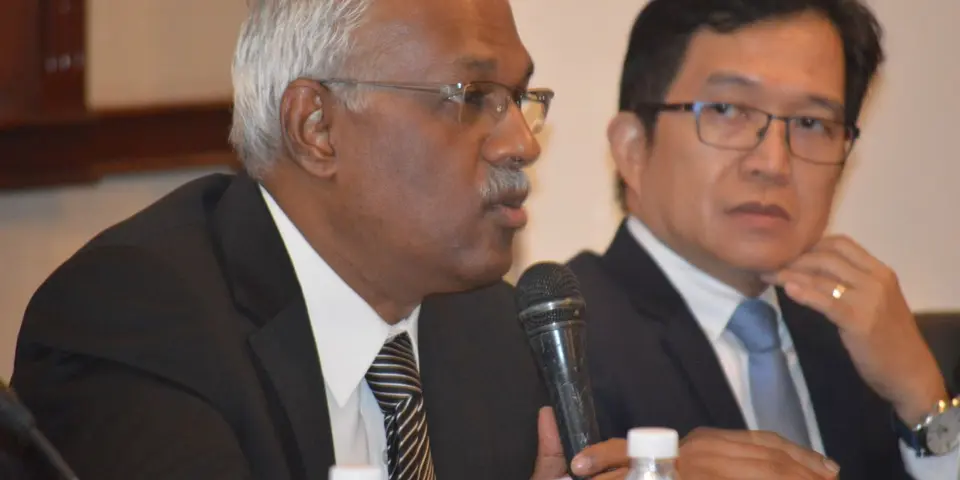
US Foreign and Trade Policy Opportunism Rules in Malaysia’s Potential Upgrade in its 2015 Trafficking in Persons (TIP) Report
May 09, 2015

By Charles Santiago
APHR Chairperson
Malaysian Member of Parliament
Clearly, nation states and world superpowers are concerned about trade deals and huge profits as opposed to human suffering at the hands of traffickers due to failed government policies and initiatives.
If it’s at all true that the next annual human trafficking report by the US state department will move Malaysia up to Tier 2 to enable its participation in the Transpacific Partnership trade deal (TPPA), we can then conclude that US president Barack Obama is all about deceit than openness.
The Trafficking in Persons report is due next month and US senator Robert Menendez has already questioned whether the White House was putting inappropriate pressure on the state department to up Malaysia’s ranking.
The state department’s official website describes the Trafficking in Persons report as the US government’s principal diplomatic tool to engage foreign governments on human trafficking.
It further adds that the report is also the world’s most comprehensive resource of governmental anti-human trafficking efforts and reflects America’s commitment to global leadership on this key human rights and law enforcement issues.
This is laughable.
Last year the state department placed Malaysia in Tier 3 because the government did not fully comply with the minimum standards to combat human trafficking and was not making significant efforts to do so.
In less than twelve months, the US is singing a different tune. And I am left wondering as to why.
The Anti-Trafficking Act 2007 was to strengthen the regulatory framework to deal more effectively with issues of human trafficking and smuggling of migrants. The government introduced a recent amendment to the act that allows for the employment of documented refuges and the setting up of a high level agency to manage anti-trafficking efforts.
It sounds pretty but we are yet to know how the government has moved to effectively implement the supposed framework.
All we have seen is a damning news report in a local newspaper at the end of last month, which said nation’s security personnel and law officers at Malaysian borders are corrupt.
The New Straits Times claimed that evidence of this systemic corruption is found in a “controversial report compiled by the Special Branch,” which is “the result of 10 years of covert, deep-cover surveillance and intelligence gathering by the Special Branch at the nation’s border checkpoints, and at different enforcement agencies throughout the country.”
The broadsheet daily also stated that the personnel of the enforcement agencies “were not only on the take, but many were on the payroll of syndicates dealing with drugs, weapons and even human smuggling.”
Before this report was out, we were shocked by headlines plastered on every major media organisation in the world that led with stories about mass graves and trafficking camps in Padang Besar.
Journalist wrote even more explosive reports, narrating eye-witness accounts of local villagers who said they had seen malnourished and diseased Rohingya refugees on the streets begging for food.
They had attended to these people and informed the police officers, who then took them away.
And yet the police say they knew nothing about the camps run by the traffickers until May this year, where 99 remains have been found so far.
Top cop Khalid Abu Bakar has also rubbished Tenaganita’s report that states trafficking camps have existed since 2008 or even before.
Despite this, the US is mulling moving Malaysia to the less-odious Tier 2 although Malaysia has not done anything at all to deserve the ranking.
It’s just like receiving a Nobel Peace Prize before proving one’s worth.
ASEAN Parliamentarians for Human Rights (APHR) was founded in June 2013 with the objective of promoting democracy and human rights across Southeast Asia. Our founding members include many of the region's most progressive Members of Parliament (MPs), with a proven track record of human rights advocacy work.